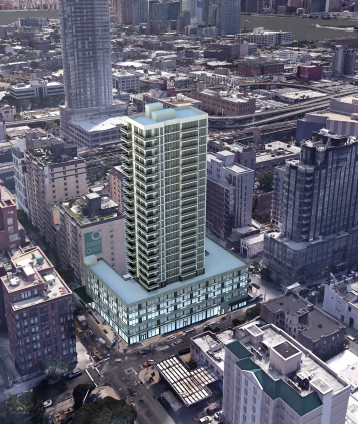By Tom Momberg
Property values in Queens are on the rebound from the housing crisis, but despite increases in median home values, the concern over the growing number of blighted, abandoned houses is very much real throughout the borough.
There are currently 172 properties in Queens that realtors call “zombie homes,” according to RealtyTrac, a national real estate tracking company. These are properties that remained vacant during New York’s nearly three-year-long foreclosure process, and in many cases have fallen into disrepair.
Lenders pay property taxes in instances when owners abandon homes and fail to complete the foreclosure process, but often don’t make an attempt to maintain or secure the properties.
The number 172 hardly compares to the nearly 2,000 zombie homes in Nassau County, but doesn’t reflect the true number of derelict properties in the borough either.
There are an additional 110 houses in Queens, mostly in Jamaica, that have been abandoned for decades under the stewardship of the New York City Housing Authority. But that number is slowly shrinking as the housing authority partners with nonprofits like Habitat for Humanity to renovate and place low-income families in them, a NYCHA spokeswoman said.
Between March 2013 and now, more than 6,000 written notices of a lawsuit were filed in Queens, which are the first state filings that result from mortgage default, property tax delinquency or common unpaid charges. Over 20 percent of the properties are vacated upon the first filing, according to RealtyTrac.
So even if a property isn’t a “zombie,” eligible for demolition, there are often hundreds more properties that are left vacant for months at a time.
Licensed real estate broker Ted Kouris, of Metropolis Realty in Astoria, said the state’s prolonged foreclosure process often creates problems at vacant properties, even if unattended for just a month.
Homeless people, drug users and criminals are widely known among the realty community to wreak havoc if a property is not secured for any length of time, he said.
“Some of the squatters have taken over, gutted the pipes and valuables, or are renting them to others and profiting off them,” Kouris said. “The homes become unkempt and unsafe, bringing surrounding home values down.”
More recently, as more of those homeowners vacate their properties after not being able to make mortgage payments, Kouris said it is increasingly difficult to determine in court who is responsible for the properties once an issue arises, whether it be the previous owner, the bank or the buyer.
The Astoria realtor and his attorney, Olga Somarras, spent almost a year in civil court and thousands of dollars to evict somebody at one of its clients’ properties, who was illegally operating a business at the foreclosed site.
“This squatter turned a profit on a non-permitted floral operation, illegally tapped into the ConEdison power grid and didn’t pay a dime to occupy that space,” Kouris said. “He wouldn’t leave, so we tried to chase him off the lot, but had to go to court and pay to get him evicted.”
That’s a rare occurrence, but Metropolis Realty and several other licensed realtors around the borough and the city have experienced similar problems with illegal occupants or criminals.
Kouris’ solution: “It’s all about securing the house,” he said. “Because the liability could fall back on the owner, it’s a good idea to install security cameras, an alarm system, or even to ask neighbors to keep an eye out for activity.”
Even in a neighborhood with some of the highest median property values in the city, there are 13 homes in Bayside that are considered zombie homes, according to RealtyTrac. Almost seven out of every 1,000 homes in St. Albans are considered zombie homes, 81 of which are eligible for demolition by the city, according to Metropolis.
To submit a vacant housing complaint, or to report someone living in or using a vacant building, click under the resources tab of the New York City website at www1.nyc.gov/
Reach reporter Tom Momberg by e-mail at tmomb


































